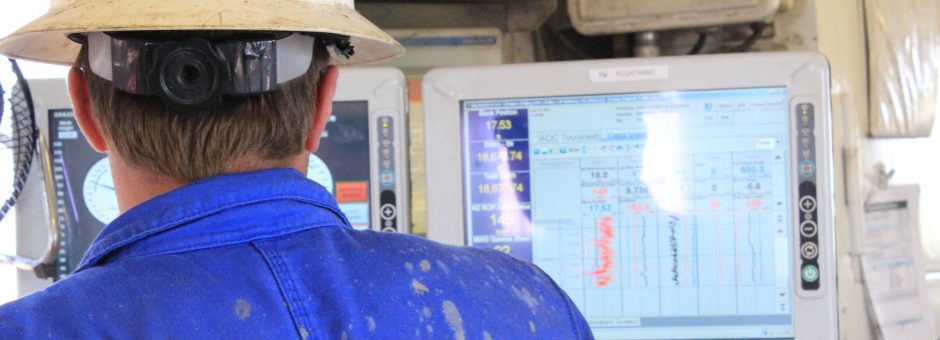Those with a history in the oil and gas industry will attest that the old adage stating that ‘the only thing constant is change’ is applicable. Booms and busts have wreaked their havoc, bringing with them periods of restructuring, mergers, downsizing and acquisitions. Riding the wave with a calm demeanor has been something of a core ethos within the sector. This time around, however, things seem different. Climate change concerns and the push for renewable energy sources are central to any conversation within the industry but, so too, is another agent of change: automation.
Artificial intelligence, machine learning, robotics and the like are transforming many an industry, and oil and gas is no exception. Doomsday scenarios depict a world where human beings are no longer necessary, but the truth is that talented individuals are still key to success, it’s simply the kinds of talents that will be most in demand that are shifting.
According to professional services network KPMG, an ongoing commitment to fostering change will be key to success.
“Whether you call it job atomization, or work pixelization, there’s little doubt that it will be disruptive. Rather than simply accommodating technology investments, reskilling must consider new tasks, processes and business models that are possible for the organization. It’s as much about innovating and building skills for the future as it is about current operational needs.”1
In Demand Skills for the Future of Oil and Gas
Management consulting firm McKinsey & Company sum up the shift as follows:
“The war for traditional technical talent is now less fierce, but the competition for new skills and capabilities has instead intensified. Most notably, companies seek digital business talent, especially people with industry, leadership, and digital skills who can act as “translators” between business needs and the providers of digital solutions.”2
While traditional disciplines such as subsurface and surface engineering will remain important, the industry will continue to see rising demand for those with expertise in digital operations. As work processes are redefined, prime candidates will possess not only hard technological skills, but softer skills as well. Critical and creative thinkers will find solutions to obstacles. Flexible and adaptive individuals will manage these transitions with ease. Collaborators will strategize between teams, while natural communicators will help implement change within smaller groups. Education and training will be fundamental for those looking to get ahead.
“For those looking for high paying, stable careers in the oil and gas sector, more education in those technical areas will be an increasing advantage,” states Goldbeck Recruiting President Henry Goldbeck.
Learning to Learn
In oil and gas, as in other sectors, the superstars of tomorrow will not be defined by what they have learned, but by what they’re capable of learning. With no process safe from disruption, it will be those that are willing and able to adjust, then re-adjust, that will provide the greatest value to their organizations.
According to Digitalist Magazine “In an increasingly fast-moving environment, those who are curious and quick to learn will gain advantages. Agility will be another key differentiator because HR leaders will increasingly recognize that, just as product and delivery cycles accelerate, HR solution lifecycles must also accelerate.”3
Leveraging Digital Expertise
All of this automation promises to create efficiencies, meaning that the value of talented individuals will be leveraged to greater extents.
“Managing for value and energy is founded on the idea that each employee creates ever more business value with more automation and digital tools at his/her disposal, leading to increasing returns on investment in personalized development and support for top performers to get the most out of their efforts.”2
Recruiting for Oil and Gas Done Right
With the increasing ability to leverage superstar technological leaders comes an even greater onus on HR to make good decisions. To this end, the HR function is taking greater part in centralized strategy and decision making.
“HR leaders who are most immersed in the business and who understand and actively participate in strategic business leadership are most effective in delivering talent and people strategies to meet business goals” says Digitalist Magazine.3
McKinsey offers similar advice:
“HR must shift its focus further toward its strategic role—with the CHRO emerging as a top adviser to the CEO, within the “G3” consisting of CEO, CFO, and CHRO.”2
For true success in changing times companies must combine a commitment to long-term planning with a willingness to adjust as necessary. Candidates, meanwhile, should possess hard digital skills as well as softer interpersonal skills, while demonstrating a willingness to learn and evolve on an ongoing basis.
Cited Sources
1 “Transforming the HR Function.” KPMG. Accessed January 21, 2020. https://home.kpmg/xx/en/home/insights/2018/12/the-future-of-hr-2019-oil-and-gas.html
2 About the author(s) Torstein Hagen is a consultant in McKinsey’s Oslo office. “The Future of HR in Oil and Gas.” McKinsey & Company. Accessed January 21, 2020. https://www.mckinsey.com/industries/oil-and-gas/our-insights/the-future-of-hr-in-oil-and-gas
3 Kindleman, Craig. “HR: Workforce Dynamics Are Driving Change In Oil And Gas.” Digitalist Magazine. Accessed January 21, 2020. https://www.digitalistmag.com/future-of-work/2019/09/26/hr-workforce-dynamics-are-driving-change-in-oil-gas-06200607
Photo: Lindsey G
https://flickr.com/photos/lindseygee

